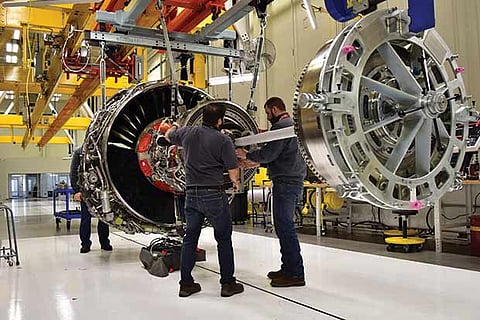

Mumbai
This is because of efficiency ratio or capacity utilisation of corporates is not likely to rise from the present 65-70 per cent that was the levels since FY15-FY17, due to global overcapacity and transition to GST, domestic rating agency India Ratings said in a report.
“We expect capex by top 200 asset-heavy corporates to increase at a CAGR of 5-8 per cent over FY18-FY20, primarily in the form of maintenance capex,” it said. In FY17, capex rose 5 per cent while the same grew 4 per cent in the previous fiscal year.
Non-stressed corporates are likely to be largest contributors to this capex drive beyond FY20, while capex by stressed corporates is likely to be muted. Contribution to the total capex by non-stressed corporates in FY16-FY17 was 80 per cent as against 80 per cent in FY11-FY12.
“The stressed corporates have a limited ability to undertake any meaningful capex activity over the next five-to-seven years due to weak credit metrics as indicated by interest cover of 0.5x and net leverage of 17.8x, along with an 8 per cent decline in pre-tax profit,” the report noted.
The capacity utilisation levels of the top 200 corporates are likely to be impacted by stagnant demand as reflected by a 9 per cent growth in nominal private final consumption expenditure in the first half of FY18 compared to a double-digit growth in FY17.
Export demand registered a 7 per cent annualised growth in April-November 2017, similar to the growth levels saw in the same period in 2016. While non-stressed corporates achieved high capacity utilisation of 75-80 per cent in FY17, the presence of stressed corporates with low capacity utilisation of 40-45 per cent could lead to an increase in mergers/acquisition across sectors under the Insolvency and Bankruptcy Code over FY19-FY20, resulting in delay in any significant greenfield capex.
It believes that with the proposed bank recapitalisation, the quantum of capital injection into public sector banks and mobilisation of capital should largely cover the provisioning shortfall for stressed assets and address issues pertaining to non-performing assets. Capital injection may also support modest growth in advances but is unlikely to support any significant investment demand by corporates, it said.
Visit news.dtnext.in to explore our interactive epaper!
Download the DT Next app for more exciting features!
Click here for iOS
Click here for Android